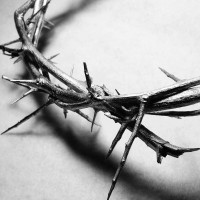
Observing Lent Together 2013
By Bruce Kane | January 29, 2013
For the first time in our short history, epic will observe the Christian tradition of Lent this year. Below you will find some basic information in regard to the historic practice of Lent. But first, let's talk about our observance - it's practice and purpose.
- We will plan an Ash Wednesday gathering, which will include the traditional marking of our heads with ash to remind us of the weight of sin in our earthly and mortal existence.
- We will each fast for the following 46 days, excluding Sundays - making the total days of the fast equal 40.
- We may choose to fast a meal each day.
- We may choose to fast a type of food.
- We may choose to fast a particular leisure activity.
- We may choose to enter a traditional Daniel fast (a strictly limited diet based upon the Biblical account of Daniel's diet in the Babylonian captivity). About a Daniel Fast Verses regarding a Daniel Fast
- Sunday's will be considered a "day off" so that we may celebrate in worship.
- Whatever kind of fast we choose, it should represent a significant personal sacrifice that will accomplish both of 2 goals.
- Identify with the sufferings of Christ (albeit far less painful).
- Experience the powerful nature of our mortal cravings in order to recognize our ongoing need for the grace of Christ.
- We will share various spiritual reflections and associated scriptures each day (details to follow).
- We will culminate our observance with a Good Friday Tenebrae worship gathering to mark the powerful work of Christ on the Cross.
In the seasons of faith, it is common in the American Christian experience to become complacent in our practice of faith and in our recognition of the power of God's grace in our live. The danger is that we may forget the significance of our need for God's on-going grace and to become comfortable in a prideful, unrepentant religious lifestyle. Taking an extended period of time to both reflect on our physical cravings and the power of temptation in our lives, and to identify ourselves with the sufferings of Christ - as a reminder to ourselves and as a statement to the world.
Hear more on upcoming Sundays.
Here is some basic information about Lent.
Back
- Lent Is a 40 day Christian festival beginning Ash Wednesday and concluding on Easter (Sundays are not counted)
- The word "Lent" comes from the old Anglo-Saxon word lengten, which means "springtime," named so for the time of the year in which it occurs.
- What we now call Lent was originally a period of fasting and study for catechumens who were to be baptized on the Saturday before Easter. The 40 day fast was said by Athanasius in 339 AD to be celebrated the world over. The 40 day fast of Jesus in the wilderness was responsible for the number 40 being chosen.
- The purpose of this extended fast was to practice self-denial and humility. This was to prepare oneself for receiving God's grace and forgiveness in baptism, given on Easter Saturday or Easter Sunday.
- The liturgical color for Lent is purple, the color of repentance and sorrow for sin.
- Lent prepares us for the observance of Jesus Christ's suffering, death, and resurrection for us. It is a season of repentance and sorrow for sin. Lent is a time of self-examination in light of the Ten Commandments; it is a time of giving up of sinful behavior, a time of personal housecleaning. It is a time of commitment to the new life of Christ begun in baptism. It is a time of disciplined study of Scripture and a time of growing in faith. In recent years Lent has become a time to remember our baptisms. It is a time to reflect on the impact of baptism on our lives, and to ask ourselves how we are doing. Most of all, it is a time of renewal and new beginnings, as we through faith apply the complete forgiveness won by Christ's death to our lives. Lent heightens our awareness that we desperately need Jesus Christ.
- As someone has said: "Lent is the Church's springtime. Out of the darkness of sin's winter emerges a people the Church--reborn through baptism into their Lord's death and resurrection from the grave."
Lent is an opportunity not an obligation. It is not commanded by our Lord, nor is it even mentioned in the Bible. Those Christians who observe it do so because they find it a helpful opportunity for repentance and renewal, for the strengthening of their faith. Christians are free to observe or not observe Lent.- The beginning of what we call "Ash Wednesday," is difficult to date with certainty, though it probably began around 600 A.D.
- Ashes are applied to the forehead of Christians in the sign of the cross (throughout the Middle Ages ashes were sprinkled on the head) as a symbol of humility and repentance. The ashes are a reminder that we are "dust and to dust you shall return" (Genesis 3:19). Thus, they are a reminder of our mortality cursed as it is by sin. Moreover, the ashes remind us of our limits, of what we are, and how greatly we need God's mercy in Christ.



